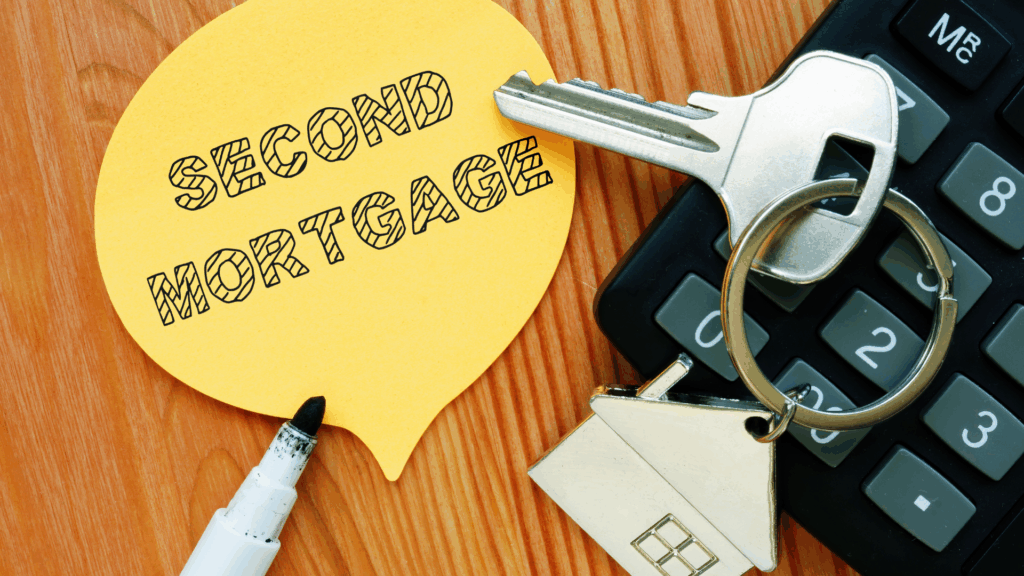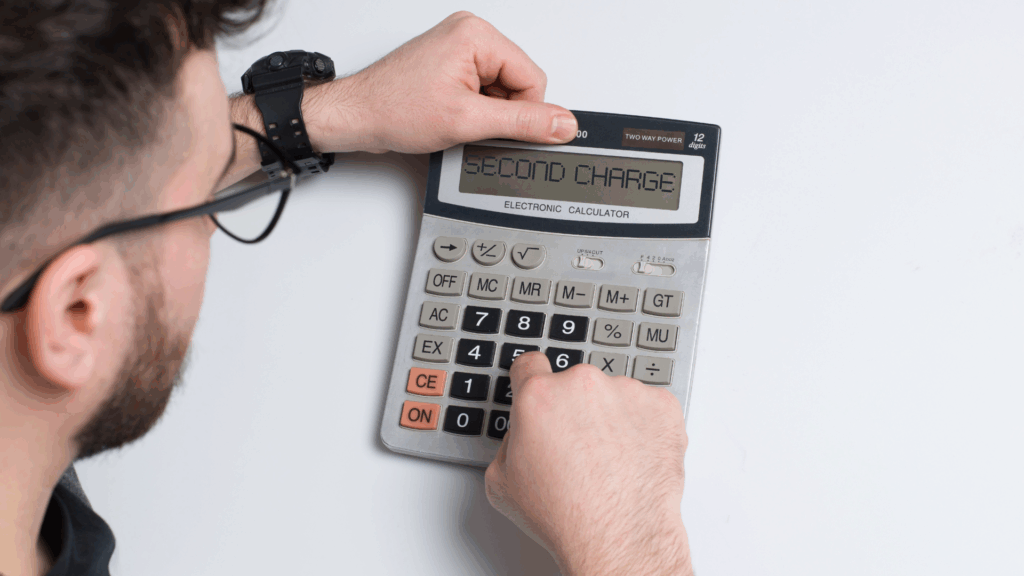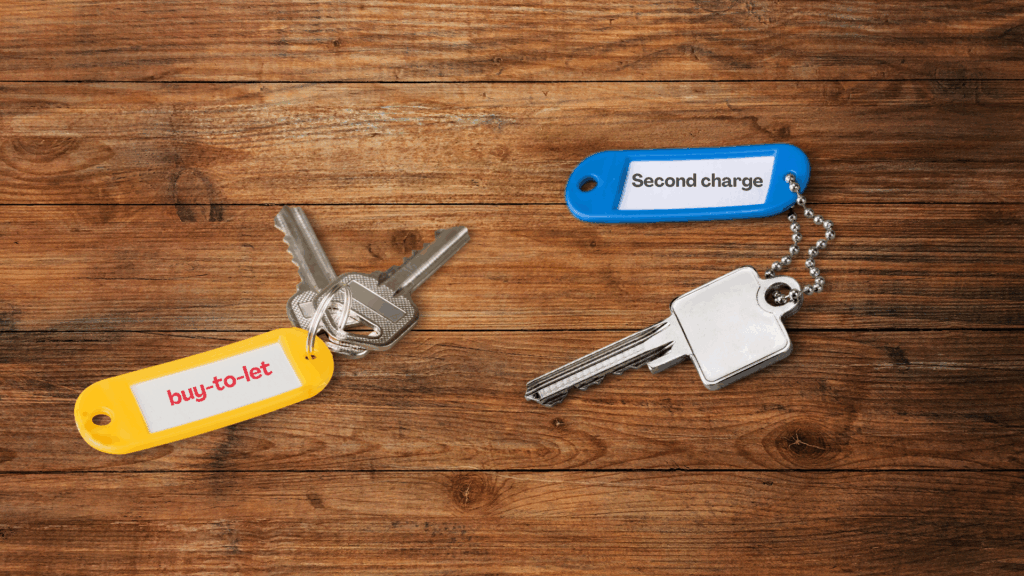- What is a Second Charge Mortgage?
- Is a Second Charge Mortgage the Wise Move?
- Who Are Second Charge Mortgage Lenders?
- Why Choose a Second Charge Mortgage?
- What are the Potential Risks I Should Be Aware Of?
- How Do I Mitigate The Risks?
- Eligibility and Requirements
- What are the Cost and Rates to Expect?
- How to Find Competitive Rates for Second Charge Mortgages?
- The Bottom Line
How To Find the Right Second Charge Mortgage Lenders?
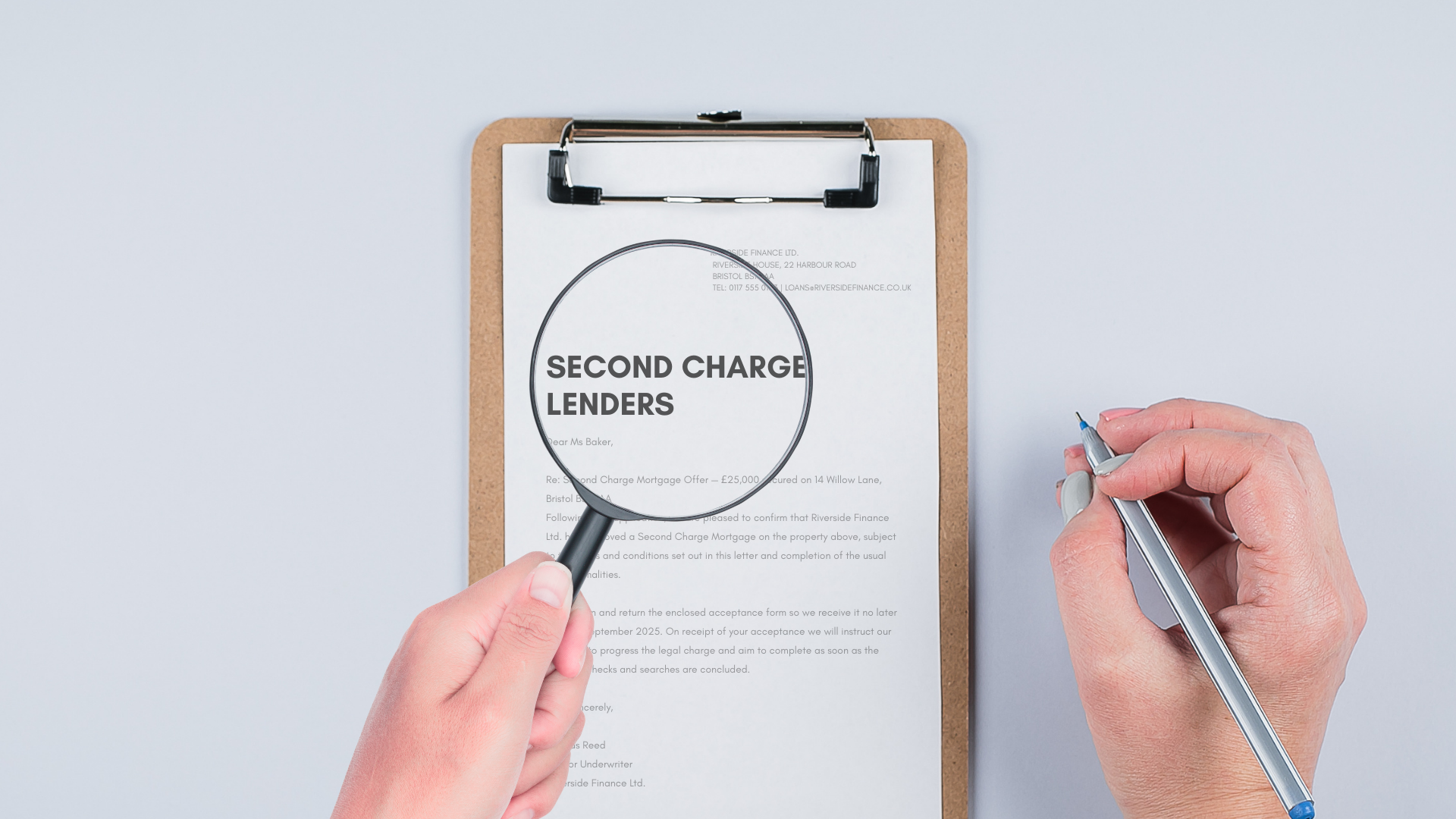
Life throws curveballs, and often, they come with a price tag. Home improvements, debt consolidation, or big life events – they all need funds.
As a homeowner, you’ve got a powerful option at your disposal: second charge mortgages. These loans let you tap into your home’s equity without touching your first mortgage.
The landscape for second charge mortgage lenders in the UK is changing. There are more choices, better terms, and lenders who get what you need.
It’s an ideal solution whether you’re just starting or have been on the property ladder for years.
But, how do you find these lenders amidst the variety?
The answer lies in getting clarity on your unique financial needs and learning the right information about them.
In this article, you’ll gain a full understanding of second charge mortgage lenders in the UK.
Ready?
What is a Second Charge Mortgage?
A Second Charge Mortgage is a loan that you take out against the equity in your home, in addition to your primary mortgage.
It’s called the ‘second charge’ because it’s the second priority for repayment after your first mortgage in the event of a default.
This type of mortgage is often used for purposes like home improvements, debt consolidation, or financing significant expenses.
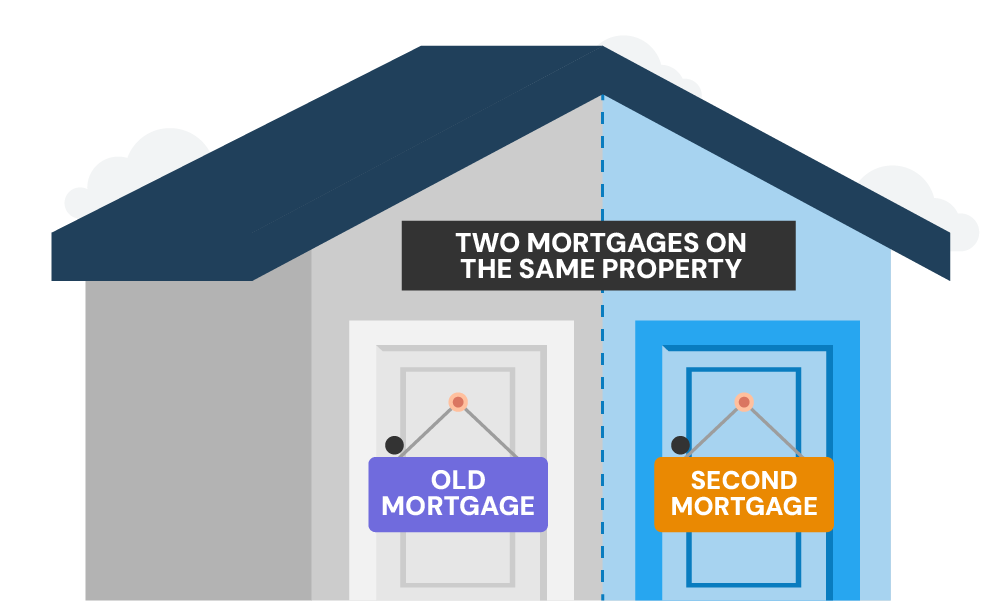
Is a Second Charge Mortgage the Wise Move?
A second charge mortgage might be the right choice for you in these situations:
- When facing large early repayment charges on your current mortgage, opting for a second charge mortgage might avoid these extra costs.
- If you’re struggling to get a personal loan due to being self-employed or having complex finances, a second charge mortgage can be a viable alternative.
- In cases where your credit score has dropped or your financial circumstances have changed since your first mortgage, a second charge mortgage can offer a solution even if it might come with a higher interest rate.
- It’s useful for debt consolidation, making it easier to manage your finances. Remember, this ties all your debts to your home, increasing the risk if you fail to keep up with repayments.
These scenarios highlight when a second charge mortgage can be a practical choice, though it’s crucial to consider the implications on your overall financial health.
Who Are Second Charge Mortgage Lenders?
In the UK, the second charge mortgage market is diverse, with different types of lenders catering to various needs.
These lenders range from traditional banking institutions to specialised firms, each with their unique approach to lending.
Banks
These are the conventional lenders that most people are familiar with.
They offer second charge mortgages as part of a broader range of financial products and are known for their reliability and established presence in the market.
For example, Barclays and HSBC are notable banks that provide second charge mortgages, offering the trust and security that come with big, well-known financial institutions.
Building Societies
These lenders are similar to banks but are often more community-oriented and can offer more personalised services.
Building Societies might have more flexible criteria for second charge mortgages, which can be beneficial for certain borrowers.
A good example is the Nationwide Building Society, which is known for its customer-focused approach and competitive mortgage products.
Specialist Lenders
These are firms that focus specifically on second charge mortgages.
They are often more willing to consider complex or unusual financial situations, making them a good option for borrowers who might not fit the traditional lending criteria.
Companies like Pepper Money and West One Loans fall into this category, offering specialised lending solutions tailored to individual needs.
Why Choose a Second Charge Mortgage?
Deciding on a second charge mortgage? It’s a path that can make a lot of sense for many, and here’s why:
- Hold onto Your Favourable First Mortgage. Got a good deal on your first mortgage? Great! With a second charge mortgage, you keep that sweet deal while snagging some extra cash.
- Dodge Early Repayment Fees. If paying off your first mortgage early comes with hefty fees, a second charge mortgage sidesteps this issue, keeping your wallet happier.
- Flexible Overpayments. Some second charge mortgages come with a flexible feature – the ability to pay a bit extra when you can. This can speed up your payoff and might save you a tidy sum on interest.
Opting for a second charge mortgage offers these pluses, making it a compelling choice for many, especially when looking to balance financial flexibility with maintaining good terms on an existing mortgage.
What are the Potential Risks I Should Be Aware Of?
Taking out a second charge mortgage comes with certain risks that you should be aware of:
- Two Mortgages to Pay Each Month. Managing two separate mortgage payments can be challenging. Ensure your budget can accommodate both repayments without strain.
- Risk of Losing Your Home. As the loan is secured against your home, failure to keep up with repayments can lead to repossession.
- Need for First Lender’s Permission. Some first mortgage lenders may not consent to a second charge, potentially complicating your plans.
- Potential Loss of Deposit if Moving. If you sell your home, the proceeds will first clear your mortgages, possibly leaving little for a deposit on a new property.
- More Interest Payments in the Long Run. Extending debt over a longer period often results in higher total interest payments.
- Higher Interest Rates than Primary Mortgage. Second charge mortgages typically have higher interest rates, increasing the cost of borrowing.
Understanding these risks is key to making an informed decision about whether a second charge mortgage is suitable for your financial situation.
How Do I Mitigate The Risks?
Mitigating risks is about making informed decisions and being comfortable with the level of risk you’re taking. Here are steps to help you navigate through this process:
Step 1: Get Clarity
Check Your Financial Status
Start by assessing your credit score to see where you stand with lenders.
Ensure you meet the eligibility criteria for a second charge mortgage and carefully review your budget.
Ask yourself key questions, such as “Can I afford the additional loan repayments for the next 10 years?” or “Do I have a stable and regular income to support this financial commitment?“
Understand the Terms
It’s crucial to fully understand the terms and conditions of the second charge mortgage. Know the interest rates, the term length, and any additional fees involved.
Also, consider the implications of these terms on your long-term financial health. It’s a good idea to seek advice from a mortgage advisor if you’re unsure.
Step 2: Evaluate Your Current Mortgage
Consider the terms of your existing mortgage. If you have a favourable interest rate on your first mortgage that you don’t want to disturb, a second-charge mortgage might be a sensible option.
However, if remortgaging offers a better overall deal, it might be worth considering.
Remember, you’ll need permission from your first mortgage lender to take on a second charge. Make sure you understand their stance and any conditions they might have.
Step 3: Plan for the Future
Life can be unpredictable. Consider potential changes in your circumstances, such as a change in income, and how that might affect your ability to repay the mortgage.
It’s best to have a plan for the worst-case scenario. This might include building an emergency fund or considering insurance options that can cover your repayments in unforeseen circumstances like illness or job loss.
Step 4: Shop Around
Don’t settle for the first offer you come across. Compare different lenders to find the best terms and rates. Remember, a lower interest rate can significantly reduce the overall cost of the loan.
And if all this overwhelms you, we recommend consulting a mortgage broker.
They can help you navigate the market, find competitive rates, and handle negotiations on your behalf. They can also provide valuable advice tailored to your specific situation.
To connect with a reliable broker, get in touch with us. We’ll set up a free, no-obligation chat with an FCA-qualified broker specialising in second charge mortgages.
Eligibility and Requirements
If you’re considering a second charge mortgage, you’ll need to tick a few boxes to qualify:
- Enough equity in your home, which means the value of your home minus what you still owe on your first mortgage.
- A regular, reliable income to cover the additional repayments.
- A good credit history is preferred, but don’t lose heart if yours isn’t spotless – some lenders may still consider your application.
- Generally, you need to be at least 18 or 21, depending on the lender. Some might set their minimum age bar a bit higher.
When it comes to paperwork, be prepared to provide:
- Proof of Income – This could be your payslips or tax returns, showing how much you earn.
- Bank Statements – These give a snapshot of your financial behaviour and management.
- Identification – Something official like a passport or driving licence will do.
- Proof of Address – A recent utility bill or a similar document to confirm where you live.
- Mortgage Details – Information about your current mortgage, including how much you still owe and your repayment track record.
Different lenders have their own sets of rules, so it’s wise to check with them or chat with a mortgage advisor to make sure you’ve got all your bases covered.
What are the Cost and Rates to Expect?
When delving into second charge mortgages, it’s crucial to understand the costs and rates involved. Here’s a breakdown of what you can typically expect:
- Interest Rates. These can range from around 3.5% to 10%, influenced by your credit score, loan amount, and lender policies. The Bank of England’s base rate also plays a role, as it affects overall lending rates in the market.
- Arrangement Fees. This is a charge for setting up the loan, often around 1-2% of the loan amount.
- Valuation Fees. Payable for the assessment of your property’s value, usually between £150 and £500.
- Legal Fees. These cover the legal work involved in securing the loan, often ranging from £200 to £500.
- Broker’s Fees. If you use a broker, their fees can vary, but typically they charge around 1-3% of the loan amount.
- Exit Fees. Some lenders might charge a fee if you repay the loan early; this can vary widely between lenders.
- Other Fees. Keep an eye out for any additional charges like non-standard construction fees or higher lending charges, which can add to the overall cost.
How to Find Competitive Rates for Second Charge Mortgages?
Finding the best rates for second charge mortgages requires some legwork.
Start by shopping around online to compare deals from different lenders, including banks, building societies, and specialist lenders.
A useful tip: pay attention to the total cost of the loan, not just the interest rate.
For a more streamlined approach, consider using a mortgage broker.
They can offer access to deals not available to the public and provide tailored advice for your situation. Plus, they handle the paperwork and negotiation, saving you time and stress.
The Bottom Line
Second charge mortgages are a way to borrow against your home. It’s a loan separate from your main mortgage.
They’re useful for extra funds without remortgaging, but come with their costs, and your home is the collateral.
Lenders for second charge mortgages range from familiar banks to specialist firms, each offering different deals.
It’s crucial to find the right one for your needs. Whether it’s a second charge mortgage, remortgaging, or another financial path, each has its pros and cons.
If you’re sitting on the fence about the best route for you, chatting with a mortgage advisor is a wise move. They can clarify your options and steer you towards a decision that benefits you the most.
Looking for the right advisor without the fuss? Get in touch with us. We’ll link you up with an expert mortgage advisor who’ll make the journey smoother and tailor a deal that’s just right for you.
Get Matched With Your Dream Mortgage Advisor...

Frequently asked questions
How much can I borrow on a second charge?
You can typically borrow between £7,500 and £1,500,000 with a second charge mortgage in the UK. The exact amount depends on your property’s equity, your income, your credit history, and the lender’s criteria. Loan terms can range from 3 to 30 years. Your circumstances will determine how much you can borrow.
Can a lender refuse a second charge mortgage?
Yes, a lender can refuse a second charge mortgage. Approval depends on factors like your credit history, property equity, and ability to repay the loan.
If a lender considers the mortgage too risky, they may not approve it. Each application is assessed individually, based on your financial situation and property details.
How long does it take to get a second charge mortgage?
Getting a second charge mortgage is usually faster than getting your first mortgage. The time it takes can be as short as a few days or as long as a few weeks. It depends on things like who your lender is and how quickly you can give them all the papers they need.
Are second charge mortgages more expensive?
Yes, second charge mortgages often have higher interest rates than first mortgages. This means they can cost more over time. You should think about all the costs, like fees and interest rates, to decide if a second charge mortgage is a good choice for you.

